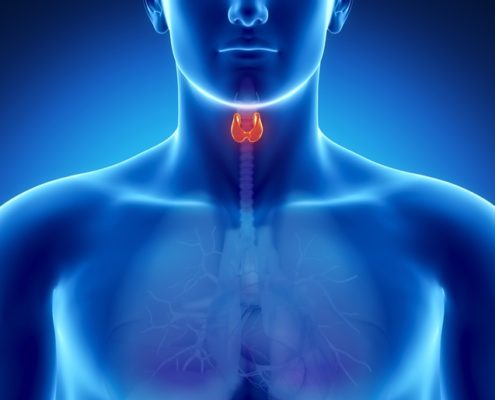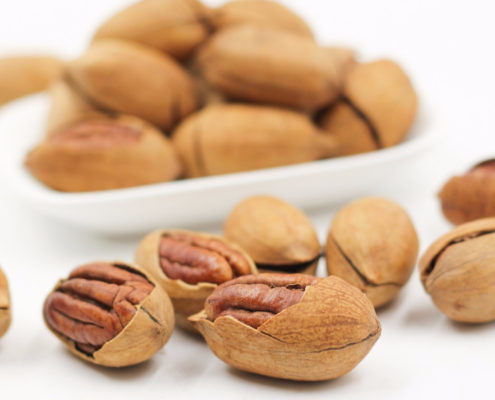Asthma is a chronic lung disease that inflames and narrows the airways. Asthma causes recurring periods of wheezing (a whistling sound comes while breathing), chest tightness, shortness of breath, and coughing. The coughing often occurs at night or early in the morning.
Causes & Symptons
To understand asthma, it helps to know how the airways work. The airways are tubes that carry air into and out of your lungs. People who have asthma have inflamed airways. The inflammation makes the airways swollen and very sensitive. The airways tend to react strongly to certain inhaled substances.
When the airways react, the muscles around them tighten. This narrows the airways, causing less air to flow into the lungs. The swelling also can worsen, making the airways even narrower. Cells in the airways might make more mucus than usual. Mucus is a sticky, thick liquid that can further narrow the airways. This chain reaction can result in asthma symptoms. Symptoms can happen each time the airways are inflamed.
A severe attack causes an increase in heartbeat and respiratory rates and the patient feels restless and fatigued. There may be coughing, tightness in the chest, profuse sweating and vomiting. There may also be abdominal pain, especially if coughing is severe. Foggy weather aggravates the symptoms. Asthma is caused by a variety of factors.
For many it is an allergic condition resulting from the reaction of the system to the weather, food, drugs, perfumes and other irritants which vary with different individuals. Allergies to dust are the most common. Some persons are sensitive to the various forms of dust like cotton dust, wheat dust and paper dust, some pollens, animal hair, fungi and insects, especially cockroaches. Foods which generally cause allergic reactions are wheat, eggs, milk, chocolates, beans, potato, pork and beef.
Asthma may result from the abnormal body chemistry involving the system’s enzymes or a defect in muscular action within the lungs. Quite often, however, asthma is precipitated by a combination of allergic and non- allergic factors including emotional tension, air pollution, infections and hereditary factors.
Therapies to help with Asthma
- Yoga therapy for Asthma
- Naturopathy for Asthma
Yoga therapy for Asthma
Asanas: Vajrasan, Simhasan, Shashankasan, Ustrasan, Uttita Padmasan Badda Padmasan, Yogamudrasan, Bhujangasan, Dhanurasan, Bhunamasan, Vakrasan, Ardha Mastyandrasan, Prasarita Padottanasan, Moordhasan, Trikonasan, Parivrutha Trikonasan, Sarvangasan, Mastyasan, Janu Sirsasan, Pasthimottanasan, Chakrasan, Halasan, Hamsasan, Mayurasan, Jatara Parivarthanasan
Dynamic Applications of Asanas: Shashanka-Bhujangasan; Urdhva-Adho Mukha Svanasan; Dandasan-Asva Sanchalana-Ardha Chandrasan; Shanka Prakshlana Asanas (Tadasan I,II,III, Kati Chakrasan, Sarpasan, Udarakarasan); Chandra, Hanuman & Surya Namasakaras
Kriyas: Neti (Jala, Sutra), Douthi (Jala Douthi with Tulasi, Vepa, Nelavemu, Krakakaya Kashayas, Vastra, & Danda), Kapala Bathi (Vyaukrama, Uthakrama & Seethakrama), Vasthi (enema with Kashayas), Shanka Prakshlana , Tratakam (Candle light, Sun, Moon & Stars), Agni Saraka, Nauli.
Pranayama & Breathing Techniques : Sunaka(Dog) Swasa, Shashanka(Rabbit) Swasa, Chair breathing Techniques, Vaksha-Udara Swasa, Yoga Swasa, Shakti Dharana Series, Anuloma Veloma, Nadi Shodhana I, II, Sukha Puraka Kubakam, Bhramari, Ujjayi, Surya Bhedana, Bastrika.
Bandhas & Mudras : Moola, Uddyana , Jalandhra & Jihva bandhas, Mudra Triya (Maha Mudra, Maha Bandha & Maha Vedha), Veparetakarani, Shakti Shalana Kaki, Bhujangi, Tadana, Tataka, Tadagi, Aswani,
Introducing Swara Yoga
Relaxation & Meditation Methods : 61 points, Yoga Nidra I, II.& III, Dhara Vidya, Antrayanam, Mantra Japa, Ajapa Japa, Mansika Puja Upasana Meditation, etc.
Naturopathy for Asthma
Frequent Steam to the chest, neck & head with camphor / eucalyptus oil drops / turmeric powder / neem leaves. Steam bath, Sun Bath, Dry & Vet Sauna bath, hot & cold foot & arm bath, enema, alternate sponging or application of radiant heat to the chest. Mud & Vet packs to the chest. All general cold water treatments, such as cold baths and cold sprays should be avoided.
Diet : Patients should take a balanced mucus free diet. Their diet should be veer to the alkaline side. The intake of salt should be moderately increase this dilutes the mucus. Completely avoid fried and starchy foods, white sugar, white flour, rice, macaroni products, pies, cakes, ice creams and candies. They should also avoid strong spices, meat and products. Butter and ghee should be used sparingly. Honey should be used for sweetening. Add ginger, black pepper, basil (tulasi) leaves to regular diet. All cooked foods should be freshly prepared for each meal. Vegetables should be taken in liberal quantities. All kinds of fruits can be taken with the exception of those belonging to citrus group such as lemon, lime, orange and grapefruit. Also avoid mucus increasing fruits like banana, crusted apple.
Note: Yoga & Naturopathy practices and diet are designed as per requirements & suitable for an individual considering their age, profession, health condition etc.
Managing Asthma
The postures presented in this section helps with managing or curing Asthma:



